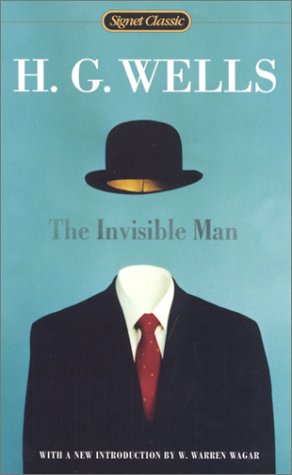Coursera Fantasy and Science Fiction Week 9
Some of my thoughts are possibly a bit confused as they were emerging as I wrote. I changed the thesis at least once and it could have used more editing for clarification.
The story seems to me to be about perceptions of duality and how point of view influences our thoughts and opinion. I think I managed to get some of that across and I felt I was heading in the direction of what Peer 2 writes, although I didn't express it as well.
I agree with Peer 4 that I slipped up in describing the scope of the reaction to the character Genly, but I disagree with their second point as I qualified my statement about the reader's point of view by saying that is what a reader would think "at the outset". That is, it sets up one of the main tensions of the story.
Thanks, as ever, for the comments.
The Left Hand Of Darkness - Ursula K. Le Guin
A cursory reading of Ursula LeGuin's "The Left Hand Of Darkness" might lead the reader to conclude she is writing about gender as a source of antagonism. She dispenses with other traditional origins of conflict: there are two non-antagonistic religions on Gethen and racism and inter-society conflicts are either rare or low-level. The extreme cold seems to exacerbate the struggle for survival to the extent that large-scale competition over resources seems a luxury no one cannot afford and the implication is that the societies have developed more slowly as a consequence. There is however, a highly-developed system of politics in Karhide based on social status and while it is from this the initial conflicts emerge and amplify, LeGuin makes it clear how an individual's context informs their viewpoint and gender is a lens through which we view all things.
Genly vainly attempts to unravel his own feelings about Estraven's lack of gender, but can only do so from his own context: "Was it... this soft, supple femininity that I disliked and distrusted in him? ...and yet, whenever I thought of him as a man I felt a sense of falseness, of imposture: in him or in my own attitude to him?"
Even when Estraven is trying to warn Genly about his lack of favour within the society, Genly has a hard time overcoming his gender perceptions to grasp the former's meaning: "I at last saw that I was missing another signal. Damning his effeminate deviousness..."
The Karhidians' respond to what they learn of Genly's biology by dismissing him and his people - and by implication all non-Karhidians - as "A society of perverts".
Ironically, by removing gender altogether, LeGuin succeeds in making biological context such a strong source of conflict at the outset that the reader immediately questions whether a resolution will ever be possible between such antithetical beings.
Responses
Form: 2/3
peer 2 → I cannot complain about the form of this essay.
peer 3 → The structure is ok but piling a lot of information in the first paragraph is not very appropriate… Any way, the expressions used are generally good.
peer 4 → Your essay was generally well-written and understandable. There are a few problems with form. Some examples: 1) "a luxury no one cannot afford" should be "a luxury no one can afford" or "a luxury one cannot afford." The double negative is poor form. 2) Your use of commas is incorrect and frequently confusing.
peer 5 → A well constructed and thought out essay.Well done.
Content: 2/3
peer 2 → This was well written. The problem is you start by suggesting that gender isn't the only issue, then say the society/government is the antagonizing issue, and then write "LeGuin makes it clear how an individual's context informs their viewpoint and gender is a lens through which we view all things." So that's a bit confused. Genly is so unsuccessful in incorporating the Gethenians for so long because he doesn't realize that his own gender bias is distorting his perception of their society; it's almost as if they are speaking another language. That's why the government and the culture is so antagonizing to Genly in this text.
peer 3 → The thesis is expressed clearly ---- the gender issues. However, about half of the essay is taken up by quotes from the story. Giving more of your own opinions may be better.
peer 4 → Your theme is understandable, but I see some problems with it: 1) You state "and by implication all non-Karhidians." I disagree. Your statement might be correct if you had said "and by implication all non-Gethenians." 2) You state "the reader immediately questions whether a resolution will ever be possible between such antithetical beings." I disagree. I think Le Guin does answer the question. I believe your essay misses one of the points of the book.
peer 5 → This essay is very well written. the thesis/agrument is clear and concise.
Comments
None.




